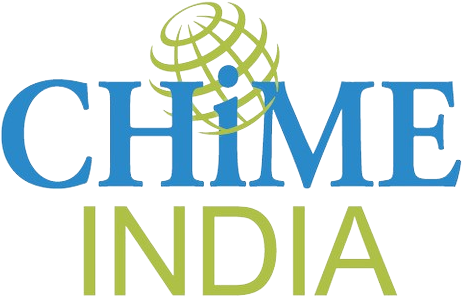Written by : Arti Ghargi
February 1, 2024

Finance Minister Nirmala Sitharaman will table the budget for FY 2024-25 in Lok Sabha on February 1. This is the final budget of the Modi government before the country goes for nationwide polls.
Although this will be the interim budget and a full-fledged financial vision for 2024-25 will be presented by the incumbent government post general elections, stakeholders are hopeful of policy changes, reduced taxes and overall increased spending.
Healthcare allocation has been one of the spotlights of the budget, especially since the COVID-19 pandemic. Over the past few years, spending in the sector has seen a steady increase.
Industry stakeholders expect the trend to continue while hoping for tax incentives and GST relief.
Digital Health News Spoke to Healthcare Industry leaders to understand what are their expectations from the interim budget.
Dr Vivek Desai, founder & MD, HOSMAC, Asia’s leading Hospital Management company said that building hospitals is a capital-intensive activity which often affects patients directly.
He believes that trimming the capex by streamlining the GST component in construction and procuring medical technologies would be a prudent step.
Talking about cost reduction, Desai said, “Considering the limited input credit avenues for hospitals, a similar GST rationalisation for pharmaceuticals and consumables could contribute to cost reduction for both the industry and patients.”
He also noted that to boost hospital infrastructure in smaller towns, the govt should consider period-specific tax incentives. He proposes a ten-year tax relief for NABH-accredited hospitals in smaller towns.
“Currently, under Section 80-IB (of the Income Tax Act), operating and maintenance of hospitals with 100 beds or more, are given 100% deduction from tax on profits for initial 5 years. This should be increased to 8-10 years as hospitals usually incur losses for the initial three years due to high operational costs. This strategic move aims to attract investments and boost infrastructure creation in Tier- II & Tier- III towns,” Desai added.
Dr Sujit Paul, Group CEO, Zota Healthcare said, “To ensure affordable and world-class healthcare for the Indian masses, the Union Budget 2024 must prioritise key initiatives. Increasing healthcare budget allocation to 2.5% of GDP will bolster reforms and infrastructure nationwide.”
Dr Desai also pointed out that the current spending of 1.8% is insufficient to meet the healthcare requirements of the nation.
In its last budget, the government allocated INR 89,155 Cr for the healthcare sector, a 13% hike over INR 79,145 Cr allocated in the previous year. However, the increased healthcare allocation is still far from achieving the government's objective of touching 2.5% of the GDP.
Deepak Sharma, CEO & cofounder, MedLern advocated for a complete GST exemption for online educational platforms offering medical training as he believes it will not only contribute to Continuous Medical Education (CME) but also address the acute shortage of skilled healthcare professionals.
“Shortage of skilled and qualified human resources and underinvestment in training by the private sector is one of the contributing factors. It is also leading to inadequate access in rural areas as well with insufficient investments in research and development or innovative care models,” Sharma added.
According to him, the government can provide financial and tax incentives to online and specialised medical education and training providers as well as hospitals to invest in workforce training and skilling.
“Such support would enable the introduction of advanced training programs for doctors, nursing staff, paramedics, and other essential personnel involved in emergencies and critical care scenarios,” he added.
Nidhi Panchmal, founder of Bengaluru-based Arva Health which deals in women’s health and wellness stressed the need for digital technology integration. She said, “Embracing digital solutions in women's preventive care, especially within chronic care contexts, showcases immense potential to significantly alleviate the burden on healthcare systems.”
She noted that governmental initiatives that integrate digital therapeutics into insurance coverage would mark a crucial step forward in ensuring comprehensive healthcare accessibility for women across urban and rural India.
Pointing to the historical lack of research focused on women’s health, Panchmal advocated for financial support from the government to facilitate collaboration between engineering and medical institutions in developing specialised healthcare technologies tailored to women's needs.
Dr Shibu Vijayan, Medical Director, Global Health at Qure.ai suggested that the possibility of X ray being bundled in insurance packages should be explored especially for detection of diseases like Tuberculosis.
“X-ray is the most common investigation we do in the radiology sector. It is a tool for frontline doctors. So can we think of X-ray being bundled in insurance packages and covered especially for diseases like TB detection or can the govt design any diagnostic package making X-ray free for public and private sector, is something that we anticipate from the budget,” Dr Vijayan said.
Artificial Intelligence (AI) is touted to be one of the major trends in healthcare in 2024. Several healthtech and medtech startups have begun incorporating AI into their products and services to improve efficiency and precision.
Vincent Anthony D'souza, cofounder & CTO, MadVR Solutions which provides surgical training and education with immersive VR technology said it is essential that the government includes funding for AI in the budget 2024.
“A targeted approach to AI would represent not just a dedication to technological progress but also enable regulatory frameworks to be aligned, resulting in an atmosphere that fosters and promotes innovation in the healthcare industry,” he said.
Anthony also said that he expects a budget that highlights the need for greater funding allocated to R&D in the HealthTech/MedTech industry.
Dr Vijayan, pointing out several initiatives taken by the govt, said that it can help startups and companies to refine their existing algorithm and in preparing gold standard dataset.
“There is a data centre being developed by Adani group in PPP model in Chennai. Govt is also working with institutions like ARTPARK IISc, ICMR is also reportedly working on a dataset for developing AI tools. The AI enabled ecosystem is embedded within the overall digitization and infra development. Govt should think about investing in pure dataset, validating that, fast tracking regulatory approval including LLMs. We anticipate partnership in that direction," he added.
The College of Healthcare Information Management Executives (CHIME) is an executive organization dedicated to serving senior digital health leaders. CHIME includes more than 5,000 members in 56 countries and two US territories and partners with over 150 healthcare IT businesses and professional services firms. CHIME enables its members and business partners to collaborate, exchange ideas, develop professionally and advocate the effective use of information management to improve the health and care throughout the communities they serve. CHIME's members are chief information officers (CIOs), chief medical information officers (CMIOs), chief nursing information officers (CNIOs), chief innovation officers (CIOs), chief digital officers (CDOs), and other senior healthcare leaders. The CHIME India Chapter became the first international chapter outside North America in 2016 and is now a community of over 70+ members in India. For more information, please visit www.chimecentral.org
